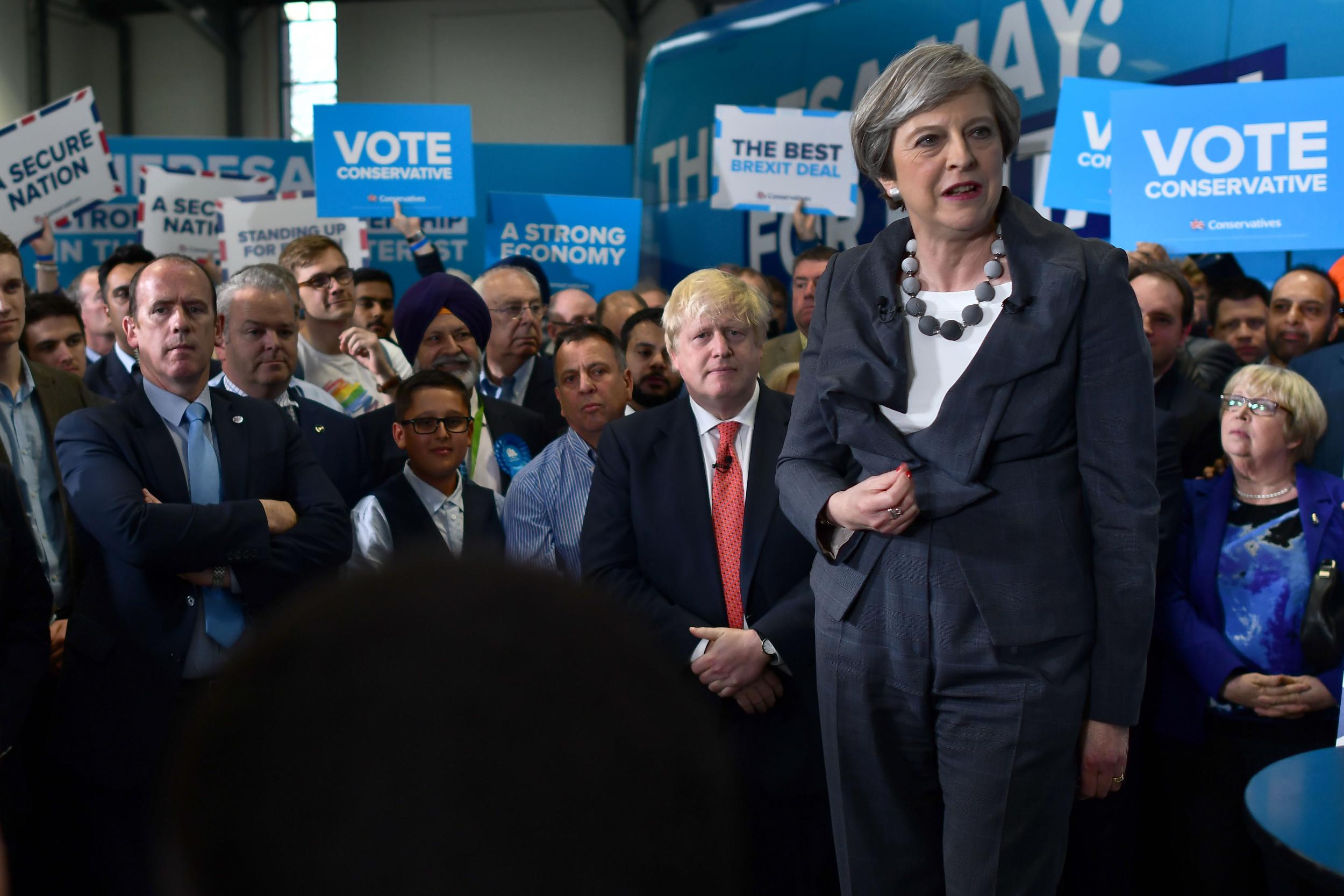Tories 'sidelined Boris Johnson during election after secret poll revealed he was less popular than Theresa May'
Foreign Secretary distrusted by voters and damaged by association with bogus £350 million NHS claim, according to new book by campaign insider Nick Timothy

Your support helps us to tell the story
From reproductive rights to climate change to Big Tech, The Independent is on the ground when the story is developing. Whether it's investigating the financials of Elon Musk's pro-Trump PAC or producing our latest documentary, 'The A Word', which shines a light on the American women fighting for reproductive rights, we know how important it is to parse out the facts from the messaging.
At such a critical moment in US history, we need reporters on the ground. Your donation allows us to keep sending journalists to speak to both sides of the story.
The Independent is trusted by Americans across the entire political spectrum. And unlike many other quality news outlets, we choose not to lock Americans out of our reporting and analysis with paywalls. We believe quality journalism should be available to everyone, paid for by those who can afford it.
Your support makes all the difference.Foreign Secretary Boris Johnson is again the focus in British politics after his challenge of Prime Minister Theresa May sparked a round of speculation over whether he’s willing to resign if she softens her stance on the Brexit bill or if he could be fired for insubordination.
Both May and her top diplomat will be New York this week before May delivers her big Brexit speech in Florence, Italy, on 22 September. Johnson went out on a limb late Friday night — on the same day as a terror attack — with a 4,000-word essay about his “glorious” vision for post-Brexit Britain that some saw as a thinly-veiled leadership bid.
In his Daily Telegraph article, Johnson argued the UK shouldn’t pay to access the single market for goods and services — countering a plan floated by Chancellor of the Exchequer Philip Hammond and Brexit Secretary David Davis.
On Sunday, Home Secretary Amber Rudd, accused her colleague of “backseat driving” with his rival plan for leaving the European Union, while Johnson became embroiled in a row with the UK statistics watchdog over his claim in the story that Britain pays £350 million ($475 million) a week to the EU.
First Secretary of State Damian Green, effectively May’s deputy, told Sky News on Sunday that Johnson will not lose his job over his intervention or its timing: “The reason is that he, like the rest of the cabinet, like the prime minister, is all about wanting to get the best deal for the British people.”
When asked on Monday if May still had confidence in Johnson, May’s spokeswoman Alison Donnelly answered in one word: “Yes.”
That hasn’t stopped the backlash against him as secret polling has emerged showing he was unpopular with voters and had to be kept out of the public eye during June’s election campaign, according to the book Betting the House: the Inside Story of the 2017 Election.
Nick Timothy, May’s former right-hand man, said the Tories focused their election campaign on May because their private research showed “nobody in the Cabinet is popular — keep them away, even Boris.” Timothy resigned as May’s co-chief of staff after the results.
What could be most damning for Johnson is his revival of a much-derided pledge from the 2016 Brexit referendum. The Foreign Secretary brought up again a claim that by leaving the EU, Britain will free up vast sums to spend on health care — a suggestion thought by some pollsters to have tipped the scales in favour of the Leave camp.
Treasury data show the UK paid a net £8.1 billion to the EU in the year 2016-2017, the equivalent to about £156 million a week. The £350 million cited by Johnson does not allow for Britain’s rebate or money sent from Brussels to the public sector.
David Norgrove, chairman of the UK Statistics Authority, wrote to Johnson on Sunday to say he was “disappointed” that he’d repeated the £350 million figure. “This confuses gross and net contributions,” Norgrove wrote. “It is a clear misuse of official statistics.”
Johnson hit back at Norgrove but also made a show of loyalty toward May. He tweeted that he was “looking forward to” May’s Florence speech, adding: “All behind Theresa for a glorious Brexit.” Johnson led the campaign to take Britain out of the EU during last year’s referendum.
May’s Tories lost their majority in the 8 June election, a result that weakened the prime minister and has kept alive the idea that Johnson could be a potential successor.
Bloomberg
Join our commenting forum
Join thought-provoking conversations, follow other Independent readers and see their replies
Comments